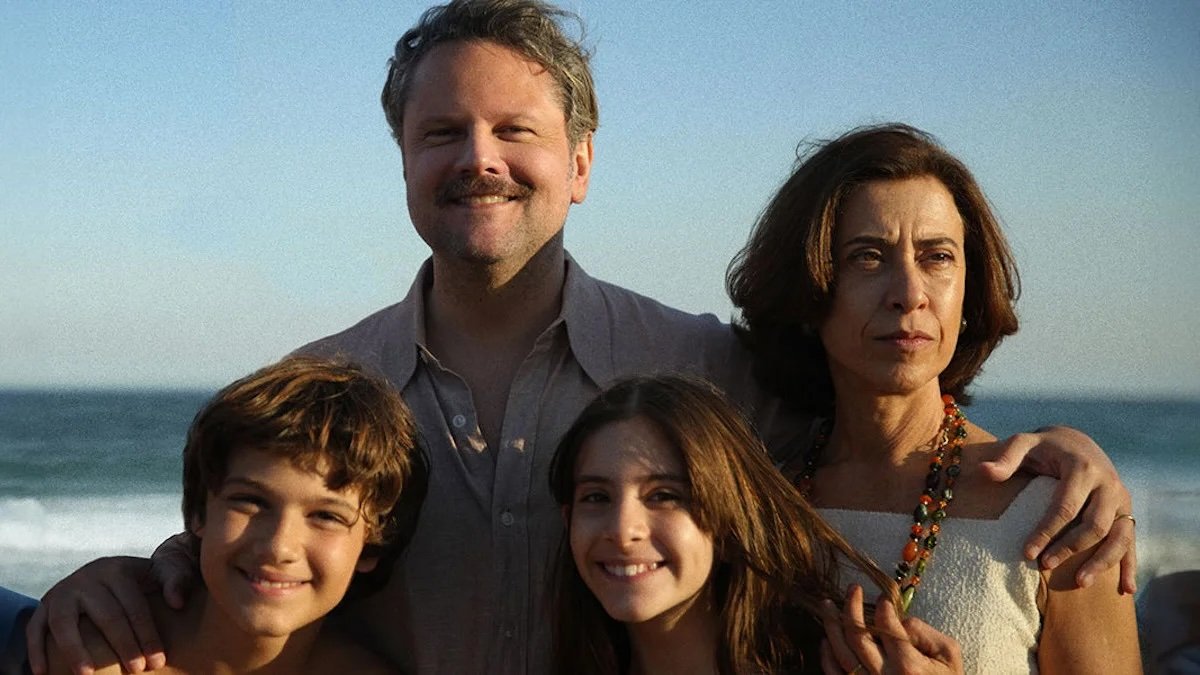
I’m still here examines a dark time in Brazilian Politics
by Kathia Woods
In the drama "I'm Still Here," “Ainda Estou Aqui” by Walter Salles and based on a memoir of the same name by Marcelo Rubens Paiva, the lack of justice permeates the film with a haunting despair. However, Salles deftly counterbalances this with profound humanity, etching the faces of those struggling to survive into our memories. While the unseen horrors of history can perpetuate grave injustices, there is a poetic tragedy in following an individual dedicated to the pursuit of justice, even when it eludes them.
The film "I'm Still Here" illustrates the lingering impact of Brazil's 21-year dictatorship, focusing on the events of 1970’s. Former congressman Rubens Paiva returns to Rio de Janeiro after six years in exile due to the 1964 Brazilian coup d'état. He lives a seemingly idyllic life with his wife, Eunice, and their five children, resuming his civil career while secretly supporting expatriates.
Political instability escalates after the kidnapping of the Swiss ambassador by far-left revolutionaries. A military raid on Paiva's home leads to his arrest and disappearance in January 1971. Eunice's public search for answers leads to her arrest and torture, while their teenage daughter Eliana faces a brief prison sentence. The media exerts pressure, leading to the unofficial disclosure of Rubens' fate to Eunice.
25 years later, in 1996, Eunice receives Rubens' official death certificate from the newly democratic Brazilian state. In 2014, the 85-year-old Eunice, now suffering from Alzheimer's disease, appears to briefly remember her past when a news report about the National Truth Commission mentions Rubens' case.
From the outset, we witness Fernanda Torres' Eunice swimming in the waters off Rio de Janeiro in 1971. Despite her earnest attempts to build a contented life for herself and her family, we sense a world constricting around her. The film refrains from idealizing Eunice or minimizing the harsh realities she shouldn't have had to endure. Instead, it delicately portrays a life spent fighting for justice after her husband is taken from her.
The film, which made its debut at the Toronto International Film Festival on Monday, centers on the journey of a single family during a turbulent period in Brazilian history, during which a military dictatorship brutally suppressed dissent, imprisoning and killing dissidents throughout the 1970s. While introducing us to Eunice and her family, director Salles weaves in moments of joy, highlighting their sense of community with their neighbors and each other.
The movie "I'm Still Here" portrays the unsettling atmosphere of living under repression. Eunice, a woman left alone to raise five children while enduring surveillance, becomes determined to uncover the truth behind her husband's abduction by the military. The film delves into the little details of her life, showcasing the emotional turmoil she experiences.
As misinformation spreads, Eunice struggles to navigate her reality without any support. She remains resilient, putting on a smile for her family portrait despite the sadness lurking beneath the surface. Co-writers Murilo Hauser and Heitor Lorega handle the unfolding tragedy with care, avoiding exploitative clichés.
The story is one many Brazilians are familiar with. It's the dark secret of fellow citizens, family members, and friends who disappeared, were swept away, and were forgotten under the new banner of progress.
The outstanding performance of Fernanda Torres as Eunice Paiva grips you and makes you witness the cowardice of men. Eunice, in her role as a wife and mother, must assume responsibility after her husband's departure. Torres' moving performance draws us in as we watch a woman grappling with grief while trying to stay strong for her children. Torres' deliberate artistic choices, like the poignant shower scene where the camera slowly pans over her bruised body, make us care deeply for Eunice and women like her who are thrust into activism. In that private moment, Eunice finally allows herself to break, showcasing Torres' gift as an actress.
Selton Mello delivers a powerful performance as Rubens Paiva, a man whose body remains undiscovered. His portrayal bears the weight of a person who has gone missing. Before his captors take him, he gives a subtle wave to his family, conveying a poignant farewell. Although he offers a small, reassuring smile, the audience understands the tragic finality of the moment.
The strength of "I'm Still Here" lies in its portrayal of a deafening silence. When strangers invade your home and pronounce you guilty without due process, there is no room for protest or tears, only quiet hope. Hate doesn't allow for questioning; it simply takes. This film captures the loud quiet of such injustice.
While the film has a couple of significant time jumps that could potentially disrupt the narrative focus, they ultimately provide a fitting closure. The movie underscores that Eunice's loss transcends generations and forms a part of a broader historical narrative. It serves as a reminder to remember the stories and experiences of those who have suffered, ensuring that others may never have to endure the same fate.
In the final moments, as the family's photographs and videos resonate in unison, they reveal the faces that held the most profound significance: Eunice and those she cherished deeply.
The film opens in Theaters in the United States on January the 17th

